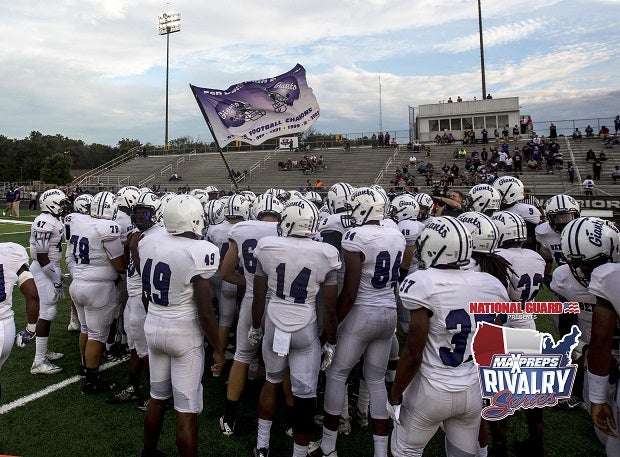Video: Final Xcellent 25 High School Football Rankings
Mike Kirschner and Ben Davis finished 14-0 and No. 6 in the nation in 2017.
Ben Davis (Indianapolis) went 14-0 in 2017. They won the state championship, finished the season ranked as the No. 1 team in Indiana and sixth in the nation.
It is not often that a head coach would walk away from a program at a time like this. But this is the exact decision that Mike Kirschner has made. His record over the last 11 seasons as head coach was 95-36 with two state championships (2017, 2014).
Before joining Ben Davis as an assistant, he was the Cascade High School head football coach. There, it was very different. He went 14-26 from 1996-99. I asked him about the differences between his first and second stints as a head coach, and I believe we can learn a lot from his answers to that question and more.
You went 14-26 in your first stint as a Head Coach, then a remarkable 95-36 in 11 seasons at Ben Davis. What do you think was the biggest difference in these two stints? There are several things that transpired in this:
1. Lack of experience on my part as a head coach. I made numerous mistakes in who I hired, just tried to fill spots and was in a big hurry to get staff in place. I did not hire the right people. I did not know enough about building relationships with players. I was still doing old school coaching — "Do what I tell you and do not ask questions" type coach. Also, I was working the players and coaches harder not necessarily smarter; trying to do it all myself.
2. One thing I did in my first stint as a head coach was keep a file of all the things I did and didn't do well. I knew if I had the chance to become a head coach again I'd have something to fall back on.
3. Over the years I learned about the process of developing the complete athlete: physically, mentally and spiritually. I did not do this early in my career. I really started to buy into the philosophy of "They do not care how much you know, until they know how much you care."

Former Ben Davis coach Mike Kirschner talks coaching, being better the second time and why he chose to leave after winning a state championship.
File photo by Wayne Litmer
This was not an easy decision by any means. We have had a great run at Ben Davis and I personally have been part of some of the greatest teams in Ben Davis history, but I felt that I personally needed a change.
The program is very successful on the field and we have been able to get numerous players in college. (At Ben Davis 42 percent of all senior players go to college to play football at various levels.) The off-field issues are what wore me down and caused me to look for a new challenge.
We have a high rate of poverty, we experience numerous single parent homes and we have more than our share of violence. This wore on my emotions and made my daily struggles tiresome. I took the head coaching job at
Mt. Vernon (Fortville, Ind.), and I am going to try to take my vision and my mission to them in hopes of changing lives in their community.
What do you think was the most important thing you did over the course of the last 11 years to get the program to where you left it? I believe and hope that in the end they do not talk about the wins, the losses, the championships but that the conversation is about the time we have spent together.
The reward in coaching usually happens years later when you see a former player and he wants you to meet his wife, say high to his kids, or just wants you to know they made it. I have a great love for my players and I hope they feel the same way about me when it is over. The world judges coaches by wins and losses and this is unfortunate because a coach should be judged by the number of lives they have changed for the better.
When you hired coaches, what are the top 2-3 things you looked for?1. Can they relate to the players on a personal level and build relationships that will be remembered for a lifetime.
2. Are they willing to put in the time that is needed to help the program achieve success?
3. And do they have a vision of perfection — if you can't see it, you can't teach it, therefore you can't make it happen.
Chris Fore is a veteran Head Football Coach and Athletic Director from Southern California. He consults coaches and programs nationwide through his business Eight Laces Consulting.
